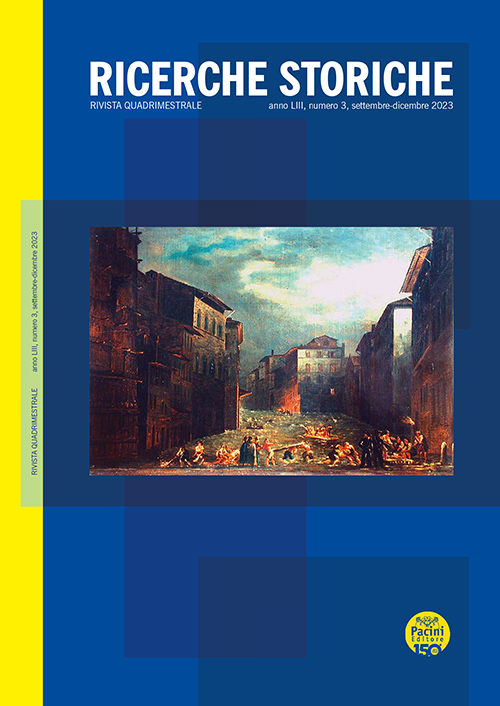‘Italiani Cattiva Gente? Anti-Italian Stereotypes and the Obfuscation of War Crimes in German Perpetrator Narratives from the Italian Theatre of War'

Ricerche Storiche LIII (3), 2023, 105-130 (co-written with Dario Pasquini).
Anti-Italian stereotypes proved central to the defence strategy of German war criminals, such as Albert Kesselring, who were tried in the early post-war period for war-crimes committed in Italy. This article identifies a number of recurring tropes which repeatedly come to the fore in accounts given by Kesselring and other German generals and officers who fought in the Mediterranean theatre, both in the testimonies given during Kesselring’s trial, and in later memoirs.
These tropes include the castigation of Italians as “traitors”, the idea that testimonies by Italians were effectively worthless, false, or at the very least exaggerated, and the equation of innocent women and children with dangerous partisans. It then draws a connection between the use of these anti-Italian stereotypes in an immediate post-war context, where they functioned as key pillars in the construction of the myth of the ‘clean Wehrmacht’ in Italy, and its subsequent anchoring in German judicial and diplomatic praxis and public discourse up to the present day.
Italiani Cattiva Gente? Stereotipi anti-italiani e insabbiamento dei crimini di guerra nelle narrazioni dei responsabili tedeschi nel teatro di guerra italiano
Gli stereotipi anti-italiani furono un aspetto centrale della strategia difensiva di criminali di guerra tedeschi come Albert Kesselring, che nell’immediato dopoguerra furono processati per crimini di guerra commessi in Italia. Questo articolo individua alcune figure retoriche ricorrenti che emergono ripetutamente nei resoconti di Kesselring e di altri generali e ufficiali tedeschi che avevano combattuto sul fronte mediterraneo, sia nella forma di testimonianze rese durante il Processo Kesselring, sia nella forma di memorie successive.
Fra tali figure retoriche ci sono la punizione degli italiani in quanto “traditori”, l’idea che le testimonianze rese dagli italiani fossero prive di valore, false o perlomeno esagerate, e l’equivalenza fra donne e bambini innocenti e pericolosi partigiani. L’articolo inoltre traccia un parallelismo fra l’uso di questi stereotipi anti-italiani nel contesto dell’immediato dopoguerra, in cui ebbero un ruolo chiave nella costruzione del mito della “Wehrmacht pulita” in Italia, e il loro conseguente attecchire nella pratica giuridica e diplomatica e nel discorso pubblico fino ai tempi recenti.
